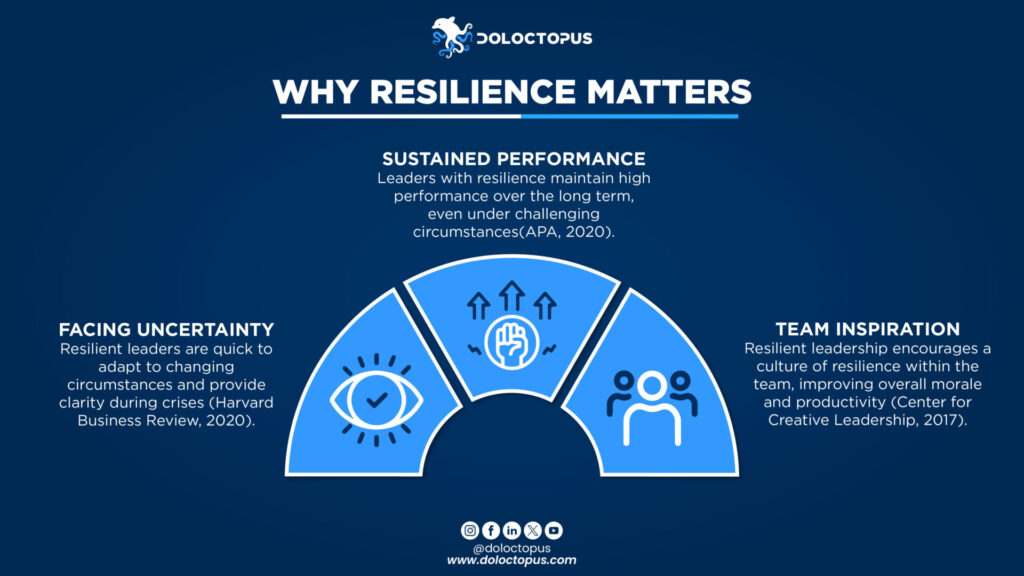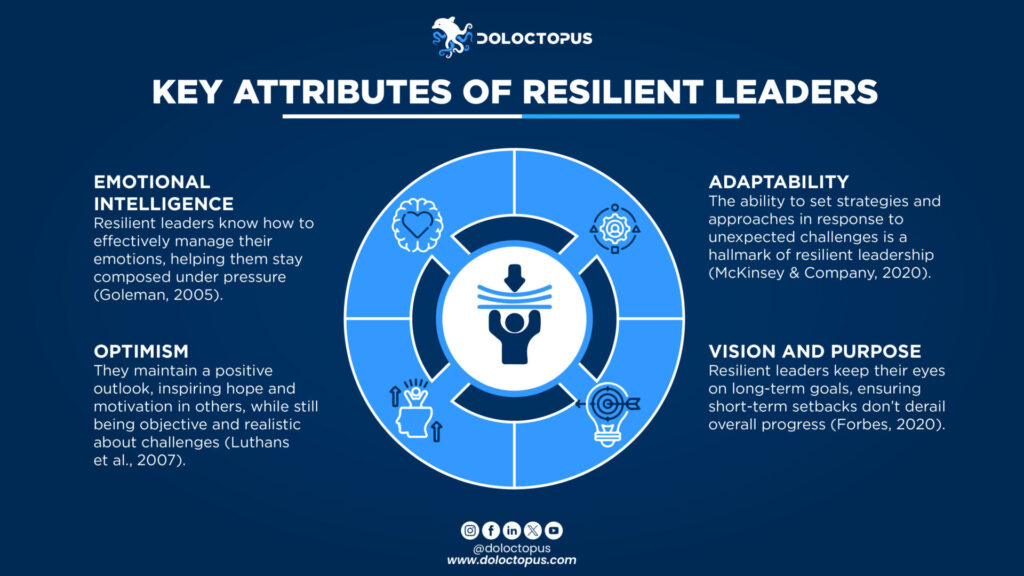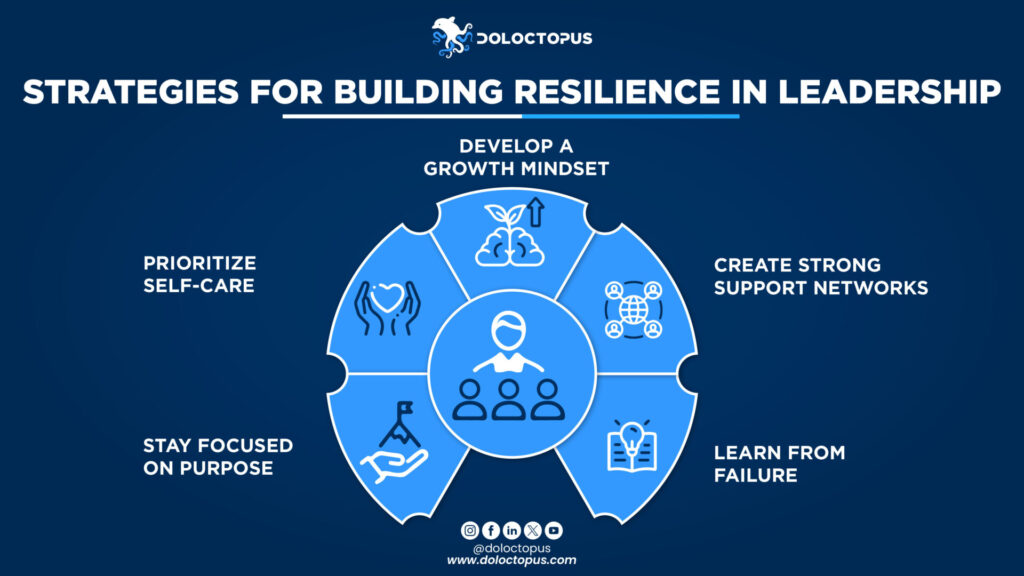Resilient leaders are able to recover from setbacks, stay focused, and guide teams through times of turbulence.
Why Resilience Matters
- Facing Uncertainty: Resilient leaders are quick to adapt to changing circumstances and provide clarity during crises (Harvard Business Review, 2020).
- Sustained Performance: Leaders with resilience maintain high performance over the long term, even under challenging circumstances(APA, 2020).
- Team Inspiration: Resilient leadership encourages a culture of resilience within the team, improving overall morale and productivity (Center for Creative Leadership, 2017).

Key Attributes of Resilient Leaders
-
- Emotional Intelligence: Resilient leaders know how to effectively manage their emotions, helping them stay composed under pressure (Goleman, 2005).
- Optimism: They maintain a positive outlook, inspiring hope and motivation in others, while still being objective and realistic about challenges (Luthans et al., 2007).
- Adaptability: The ability to set strategies and approaches in response to unexpected challenges is a hallmark of resilient leadership (McKinsey & Company, 2020).
- Vision and Purpose: Resilient leaders keep their eyes on long-term goals, ensuring short-term setbacks don’t derail overall progress (Forbes, 2020).

Strategies for Building Resilience in Leadership
- Develop a Growth Mindset: Leaders should view challenges as opportunities for learning, which encourages resilience (Dweck, 2006).
- Create Strong Support Networks: Resilient leaders surround themselves with trusted colleagues and advisors for effective guidance and emotional support during tough times (Forbes, 2020).
- Prioritize Self-Care: Physical and mental well-being are critical for maintaining resilience, as they help leaders manage stress and avoid burnout (Harvard Business Review, 2020).
- Learn from Failure: Rather than fearing failure, resilient leaders see it as a learning tool, quickly bouncing back from mistakes and using the lessons learned for future challenges (APA, 2020).
- Stay Focused on Purpose: Leaders with a clear sense of purpose are more resilient, as they have a solid foundation of values and goals to guide them through adversity (McKinsey & Company, 2020).

Resilient leadership is essential in our uncertain world. Leaders who are emotionally intelligent, adaptable, and focused on long-term vision can weather challenges all while keeping their teams motivated and moving only forward.
References:
- Forbes. (2020). “The Importance of Resilience in Leadership.” Retrieved from https://www.forbes.com.
- Luthans, F., Youssef, C. M., & Avolio, B. J. (2007). Psychological Capital: Developing the Human Competitive Edge. Oxford University Press.
- Center for Creative Leadership. (2017). “Resilience in Leadership: A Key to Sustainable Performance.” Retrieved from https://www.ccl.org.
- American Psychological Association. (2020). “Building Your Resilience.” Retrieved from https://www.apa.org.
- Harvard Business Review. (2020). “How Resilience Works.” Retrieved from https://hbr.org.
- McKinsey & Company. (2020). “The Role of Resilience in Leadership.” Retrieved from https://www.mckinsey.com.



